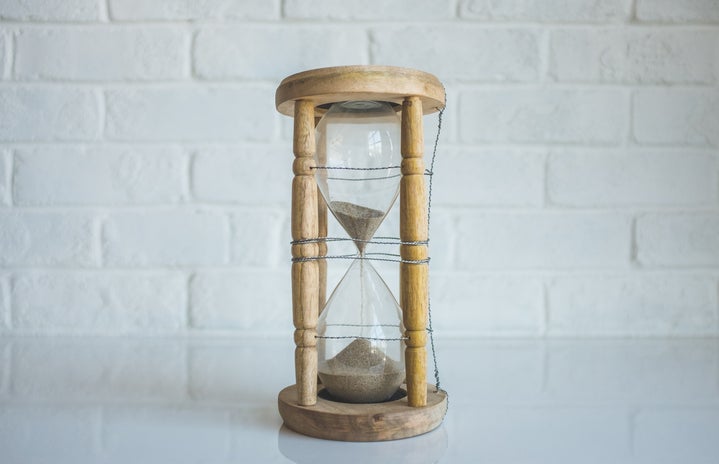Have you ever looked around a room and assumed that every other person in the room knows more than you do? Sometimes our brains tell us that. So, I’m here to tell you that, most likely, every other person in the room does not know more than you do. In fact, maybe you know more than they do!
Imposter syndrome is defined as “a pervasive feeling of self-doubt, insecurity, or fraudulence despite often overwhelming evidence to the contrary.” It plagues many women today in both academic and professional areas. In many areas of my own life, I find myself questioning how I got there and telling myself I don’t deserve to be there. In upper year courses, I find myself looking around at the other students, thinking, “they all know what they’re doing and I don’t.” At work, I have thoughts such as, “everyone is watching me and thinking I’m doing a bad job.” If any of these thoughts sound familiar to you, you may also experience imposter syndrome.
When I started recognizing these thought patterns in myself, I started wondering—why? Why do we second-guess ourselves when we are perfectly qualified to be where we are? Why is it that even with years of academic and work experience I still feel incompetent? According to a 2018 article by Olivia Petter, impostor syndrome “appears to be common in successful women.” The fact that it is more common in women than men could suggest that gendered social norms and expectations play a role. It is less common for women to see other women in high-achieving positions, as we have grown up seeing primarily men in the roles of professors, CEOs and leaders. Perhaps this causes us to feel like we shouldn’t be in any high-achieving positions. A 1978 study by Clance & Ines states that “certain early family dynamics and later introjection of societal sex-role stereotyping appear to contribute significantly to the development of the impostor phenomenon.” Unfortunately, I can’t pinpoint exactly how this syndrome developed in myself and so many other women. However, I have some ideas for overcoming it.
Once I started recognizing my impostor syndrome, I realized how ridiculous some of my thoughts sounded. When I took a step back, I realized that saying, “I’m bad at my job and I don’t know what I’m doing,” was objectively untrue. So, I started changing the words I tell myself. Instead of thinking, “I’m bad at my job,” I try to think, “I’m good at my job, but I am still gaining experience.”
I also try to remind myself of all the work I have done to be in certain positions. Reminding myself of this makes me feel more confident. I wouldn’t be a student or an employee without doing the necessary work to get there. It is possible to be confident in your current abilities while still recognizing areas for growth.
Another helpful step I took was uncovering the greatest secret of adulthood: no one actually knows what they’re doing one hundred percent of the time. Mentors, family members and other influential people in my life have expressed to me that they still feel unqualified sometimes, and that’s completely okay.
I am slowly learning to strike a balance between confidence and self-criticism, and learning to be self-aware of my negative thoughts. Overcoming imposter syndrome is an ongoing effort, but it is helpful to remind myself that many other people are feeling the same way I do. It is very freeing to look around a room and think, “no one in this room knows everything and I am probably doing just fine.”
Related Articles
- Don’t Wait To Jump On Your Hobby Horse
- 5 Ways To Rock Your Grad School Applications
- Five New Creative Ways To Decorate Pumpkins
Want more HCW? Check us out on social media!
Facebook, Twitter, Instagram, Pinterest
Subscribe to our newsletter!



